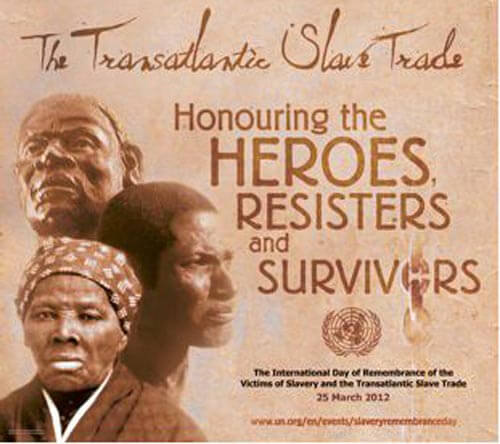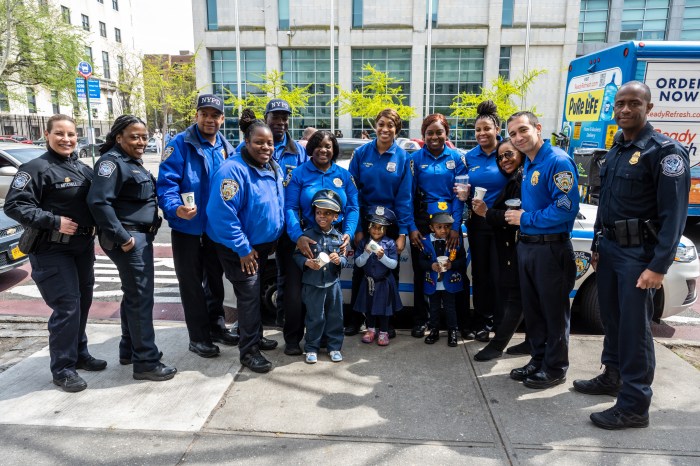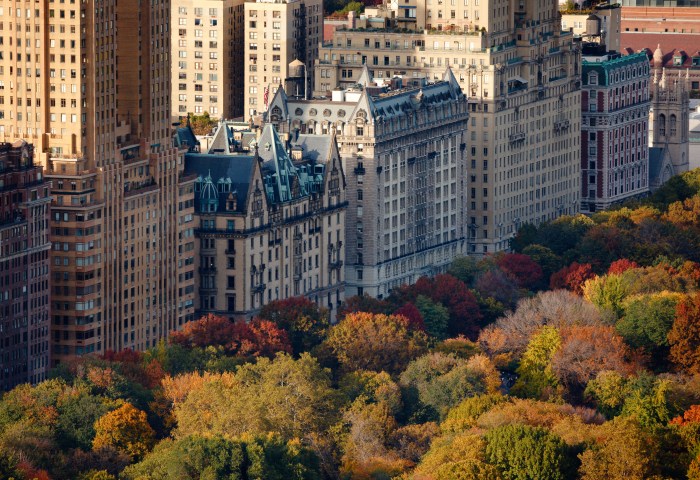Friday, March 23
NGO Briefing: Transatlantic slave trade: Honoring the Heroes, Resisters and Survivors 10:00 a.m. – 12:30 p.m.
Panelists: Historian and writer Sylviane Diouf, curator of Digital Collections at the Schomburg Center for Research in Black Culture; Sasha Turner, assistant professor of history, Quinnipiac University; Dr. Rita Pemberton, Trinidad and Tobago. Dr. Pemberton is a history professor at the University of the West Indies and author of several books on the topic of slavery.
The briefing is to be webcast live.
Moderator: USG Akasaka, Department of Public Information
Venue: Conference Room 3, North Lawn Building, United Nations, New York
Weekend of March 24-25
Radio features on the slave trade from the African Diaspora
http://www.unmultimedia.org/radio/english/tag/slavery/
•The Accompong Maroons of Jamaica (English)
•Elder Ghanaian recalls stories of the slave trade in Ghana (English)
•Ghanaian educator talks about Ghanaians before slaver (English)
•Ghanaian University of Cape Coast Vice Chancellor talks about the transatlantic slave trade (English)
•Traditional Columbian music (Spanish)
•Quilombo Communities in Brazil (Portuguese)
•African roots in Brazil (Portuguese)
•Prof Felix A Chami, Archeologist with UNESCO, explains how local Tanzanians worked with British foreigners to combat the slave trade (Kiswahili)
Monday, March 26
Solemn Commemorative meeting 3:00 p.m. – 6:00 p.m.
The president of the General Assembly is convening a special commemorative meeting of the General Assembly on the occasion of the International Day of Remembrance of the Victims of Slavery and the Transatlantic Slave Trade, on Monday, March 26, at 3:00 p.m. Statements are to be delivered by the deputy secretary-general of the United Nations, the president of the General Assembly and representatives of regional groups.
Dr. Rick Kittles, scientific director of the Washington, D.C.-based African Ancestry Inc., will deliver the keynote address. African Ancestry Inc. “helps the descendents of enslaved Africans find their roots” via DNA testing. He is also an associate professor in the Department of Medicine and the Division of Epidemiology and Biostatistics at the University of Illinois, Chicago.
The commemorative meeting is also to feature the National Ballet of Cameroon.
Venue: General Assembly Hall, United Nations, New York
Tuesday, March 27
Honoring the Heroes, Resisters and Survivors: Exhibit Opening & Cultural Culinary evening: 6:00 p.m. – 8:30 p.m.
Inauguration of the exhibition, comprising displays from the following exhibitors: Alex Locadia, Earl Pinto Collection, Schomburg Center for Research in Black Culture, UNESCO, Yale University Press, UN Radio. Exhibit will include 20 images of heroes and activists, original documents, historical illustrated newspapers and artifacts from a private 19th century collection, the painting “For Whom the Bell Tolls,” maps and radio interviews.
An evening of African and Caribbean cuisine and culture will follow.
Master of Ceremony: Mr. Ramu Damodaran, deputy director, Outreach Division, DPI.
Venue: Main Gallery, Visitors’ Lobby, United Nations, New York
Cultural Culinary Evening: Chef and Culinary consultant Scott Barton, instructor, Institute for Culinary Education, and doctoral student in Food Studies at NYU will discuss the Columbian exchange, as well as the effects of plantation agriculture relative to human trafficking in the Atlantic trade.
Performances by the National Ballet of Cameroon. African and Caribbean cuisine served.
Master of Ceremony: Mr. Ramu Damodaran, deputy director, Outreach Division, DPI.
Venue: Main Gallery, Visitors’ Lobby, UN Headquarters, New York
Wednesday, March 28
Film Screening: 6:30 p.m. – 9:00 p.m.
“Slavery By Another Name” (Sam Pollard, 2012) (1 hr 30 mins)
Based on Douglas A. Blackmon’s Pulitzer Prize-winning book, the film illuminates how in the years following the Civil War, insidious new forms of forced labor emerged in the American South, persisting until the onset of World War II.
Presenter: Sam Pollard, producer of “Slavery By Another Name”
Question & Answer session
Friday, March 30
Global Student Videoconference – New Approaches to Teaching African History and the Transatlantic Slave Trade- 9:00 a.m. – 4:00 p.m.
The UN Department of Public Information (UN DPI), in collaboration with UNESCO ASPnet program and an advisory group, is organizing a global video conference for students from primary and secondary educational institutions in six countries – Bermuda (African Diaspora Heritage Trail), the Dominican Republic (Amistad America), The Gambia, Ghana, the United Kingdom and the United States (National Underground Railroad Freedom Center.
This live interactive forum will aim to:
•Link the history of the transatlantic slave trade to the places where people live;
•Share local stories about heroes, resisters and survivors to raise global awareness of the wide spread resistance to slavery;
•Consider the legacy of slavery and its link to racism and prejudice; and,
•Discuss concrete actions that can be taken to address this problem.
Welcoming remarks by Ms. Nathalie Leroy, chief, Education Outreach Cluster
The briefing is to be webcast live.
Moderator: Christopher Moore, curator and special projects coordinator, Schomburg Center for Research in Black Culture.
Venue: Conference Room 2, North Lawn Building, United Nations, New York
Other activities
•“The role of education in resistance and survival,” virtual academic symposium organized by Benedict College, in Columbia, South Carolina, the UN Academic Impact Hub on Human Rights, Tuesday, March 27
•Linked to Monmouth University, The College of Staten Island, and a couple of universities abroad.
•Concert featuring prominent artists from Africa, the Americas and the Caribbean; [venue and date to be confirmed]
•UN Information Centres
•Accra: Student field trip to Cape Coast Castle (UNESCO World Heritage site), followed by student activities including stories and poems
•Ankara: Display of the travelling exhibition at Ankara’s main metro station in downtown Kizilay
•Antananarivo: Exhibition contest, Film screening, Student Conference at the University with expert panel on human rights
•Brazzaville: Screening of “Slave Routes: A Global Vision” for students and NGOs at the Ministry of Foreign Affairs, followed by panel discussion
•Dar Es Salaam: Organized with the Youth of the UN Association – Visit to a former major slave trading post, Bagamayo, for a group of primary and high school students with briefing on impact of slave trade
•Dhaka: exhibit, seminar, poetry recitation, short drama
•Geneva: Film screening
•Mexico City: Screening of “Slave Routes: A Global Vision” and “Women Voices from la Costa Chica de Guerrero y Oaxaca”, along with mini-website, and artistic workshops with the Memoria and Tolerancia Museum about the slave trade
•Ouagadougou: Itinerant exhibition of photos, posters, books, films, maps, in 10 high schools in Burkina Faso, at the Parliament, and on UNIC premises
•Pretoria: Lecture in Cape Town by UNIC Director followed by a discussion
•Travelling exhibition “The Abolition of the Transatlantic Slave Trade” will be exhibited at various locations worldwide, including UNICs, but also universities.
























